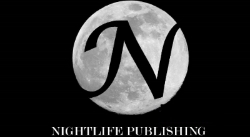When I wrote about the
opportunities and pitfalls of writing genre fiction last week, I suggested that
we as independent authors have the chance to distinguish ourselves by pushing
the boundaries of our chosen genre. (See Genre
Conventions, Clichés and Evolution) Now, I'd like to focus on the specific
I work with to help illustrate this idea.
Genre Combinations
It’s common in modern fiction for stories to blend more than one genre together. The tension or interaction between the different conventions gives the narrative a particular flavor that can work very well. Historical romance, military science fiction and dystopian YA have been and continue to be popular combinations.
I combine crime thrillers and spy fiction into a sub-genre that I
refer to as criminal espionage. The connection between
the two base overlaps to the point of almost being seamless. Intelligence
officers often deal with smugglers, assassins, thieves and other criminal
elements to carry out their missions. Espionage itself is often defined as
breaking the laws of a foreign government to acquire information. Many of the
major historical events that revolve around spies including Watergate, the Iran
Contra Affair, and even Madame Butterfly also have a distinct criminal
component.
The Why and the How
So if there is a basic link between crime fiction and spy fiction, what makes mine unique? The two aspects that I try to focus on are process and motivation.
Motivation: Unlike the standard spy fiction tropes, my stories are not about
terrorists trying to kill the President, finding secret nuclear facilities or
recovering the list of every undercover agent that always happens to be lying
around waiting for someone to steal. (See How to
Write Spy Fiction) The goals of my characters are much more sordid. They're
driven by things like greed, lust, revenge and hate. Of course these negative
drives find their way into spy thrillers of all types, but in my work they are
not subsumed by concepts of avoiding war or saving the world. I feel the scope
and reach of their actions and consequences is much closer to the reader's
perspective. Hopefully that makes the characters and the story easier to relate
to.
Process: Unlike a lot of crime fiction that I've read, my characters
commit their crimes with the skills and tactics normally reserved for elite
spies and Special Forces. My criminals are not desperate degenerates. They are
skilled specialists. They don't rush blindly into an action. They study,
evaluate, prepare and execute their operations with precision. They plan for not
only the violent action but the legal, medical and social consequences of their
actions. There are many real and imagined criminals that approach their craft
with the same rigor. By combining high training with low motives, I try to
capture a flavor in my work that will set me apart from other thriller writers.
Pioneers of the Craft
While I may or may not have coined the term criminal espionage, I
certainly did not come up with the idea first.
There is a significant body of work in this subgenre that spans across several
types of media including:
- Books: 100 Bullets, A Lonely Resurrection, Thick as Thieves, The Killer, Silence and Co.
- Film: The American, Bad Company, Driver, The Professional, The Usual Suspects, Way of the Gun
- Television: Burn Notice, Leverage
- Video games: Hitman, Watch Dogs, Sleeping Dogs
All these stories
provide more than just inspiration. They provide a road map that other criminal
espionage writers can follow by introducing the concepts that can become
conventions over time.
Your Turn
So what subgenre are you working in? What major works define your space and what have you learned from them? How do you make your work stand apart? Please leave a comment and let me know. We can all learn something by both finding our own space and watching others build their own genres too.
Have fun.

